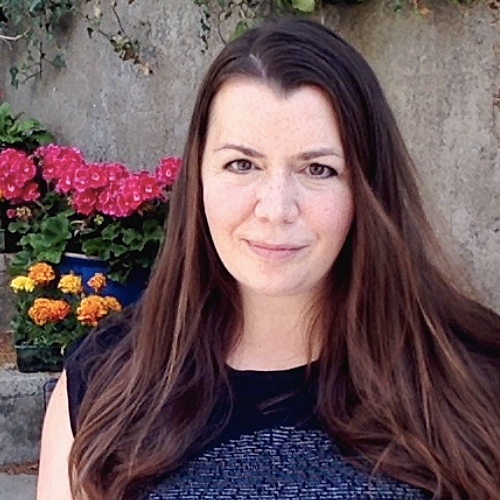 IBCLC Detailed Content Outline: Psychology, Sociology, and Anthropology Focused CERPs - Section V
IBCLC Detailed Content Outline: Psychology, Sociology, and Anthropology Focused CERPs - Section V
Access CERPs on Psychology, Sociology, and Anthropology for the IBCLC Detailed Content Outline recertification requirements. Enjoy convenient on-demand viewing of the latest Psychology, Sociology, and Anthropology focused IBCLC CERPs at your own pace.

Utilizing Connected Health Technology and Telehealth to Improve Perinatal Access and Quality in Rural Areas

Sarah J. Rhoads, PhD, DNP is a telehealth researcher and educator, emphasizing the human impact of technologies on health care provider roles and patients. Dr. Rhoads is a Professor at the University of Tennessee Health Science Center. She has been the primary investigator on multiple grants related to telehealth and is a Co-Investigator with the South Central Telehealth Resource Center, which facilitates telemedicine in Arkansas, Mississippi and Tennessee. Several of Dr. Rhoads’ research and project grants have focused on the Mississippi River Delta region of the United States. Dr. Rhoads has a passion for improving maternal, neonatal, and pediatric care in rural areas.
Despite the best efforts of the health care community, many rural women during pregnancy do not have access to obstetrical health care providers or a hospital that delivers near their home. This decreased access to services may lead to poor pregnancy and neonatal outcomes and when a woman has a high-risk pregnancy, access to care becomes a critical issue. Due to this disparity in access to care and maternal/infant outcomes, it is essential that health care providers and communities examine different ways to improve access. Connected health and telehealth technology is an innovative way to reduce access to care issues and assist women in having a healthier pregnancy, ideally improving maternal and neonatal outcomes.

View Details / Enroll

View Details / Enroll

Vestibular Processing: Using the Sixth Sense to Support Lactation and Parent/Infant Relationships

Gretchen Becker Crabb is an Occupational Therapist, Licensed Professional Counselor, and Endorsed Infant Mental Health Therapist. She is also a Certified Lactation Counselor, La Leche League Leader, and Brazleton Newborn Observation (NBO) trainer.
Gretchen’s passion is rooted in fostering lifelong relationships and connection through co-regulation in pregnancy and beyond. Her unique approach to lactation support and therapy is rooted in culturally attuned sensory, somatic, and trauma-informed mental health techniques.
Gretchen owns and operates a private practice in Madison, Wisconsin. For 21 years, she has provided developmental, trauma, feeding, and attachment support for tiny humans and their caregivers in birth to three, preschool, private practice, and peer group settings. Gretchen is an international speaker, reflective supervisor, and infant mental health consultant. In these roles, she offers compassionate, experiential, and reflective holding spaces for professionals. She is a proud United States Air Force spouse and mother of three boys.
Topic: Infant Mental Health: What Does It Look Like in Practice? - [View Abstract]
Topic: Scent-Sational Connections: The Role of Olfaction in Development - [View Abstract]
Topic: Sensory Processing and Breast/Bodyfeeding: Using Co-Regulation to Support the Feeding Relationship - [View Abstract]
Topic: Vestibular Processing: Using the Sixth Sense to Support Lactation and Parent/Infant Relationships - [View Abstract]
The body’s ability to process sensory information provides the basis of all function. Interestingly, our most foundational sense of movement is often overlooked as a component of lactation support. In this presentation, we will tie together research in neurology, primitive reflexes, mental health, and sensory integration to demonstrate the significant impact vestibular function has on the quality of lactation and infant/caregiver relationships. Participants will enhance their observational skills and explore ways to provide support for body/breastfeeding dyads using a vestibular processing perspective. Experiential activities will offer participants the opportunity to play with movement and reflect on personal experiences to enhance self-awareness and compassionate care.

View Details / Enroll

Weaning: Supporting Families Stopping Lactation and/or Ending Their Breastfeeding/Chestfeeding Relationship

Joy MacTavish, MA, IBCLC, RLC is an International Board Certified Lactation Consultant and certified Holistic Sleep Coach focusing on the intersections of infant feeding, sleep, and family well-being. Through her business, Sound Beginnings, she provides compassionate and evidence-based support to families in the greater Seattle area, and virtually everywhere else. She entered the perinatal field in 2007 as birth and postpartum doula, and childbirth and parenting educator. Joy holds a Master of Arts in Cultural Studies, graduate certificate in Gender, Women and Sexuality Studies, and two Bachelors degrees from the University of Washington. She enjoys combining her academic background, analytical skills, and passion for social justice into her personal and professional endeavors. Joy serves as an Advisory Committee Member and guest speaker for the GOLD Lactation Academy. When not working or learning, she can be found homeschooling, building LEGO with her children, or dreaming up her next big adventure.
Topic: Full-Term Breastfeeding/Chestfeeding: Benefits, Considerations, and Ways to Offer Support - [View Abstract]
Topic: Mindful Breastfeeding: How Lactation Professionals Can Support Calm and Connection - [View Abstract]
Topic: Sending Reports: What’s in it for IBCLCs? - [View Abstract]
Topic: Supporting Clients Facing Fertility Treatment - [View Abstract]
Topic: The Intersection Between Lactation, Sleep, and Family Well-Being - [View Abstract]
Topic: Weaning: Supporting Families Stopping Lactation and/or Ending Their Breastfeeding/Chestfeeding Relationship - [View Abstract]
While lactation support spans the time from the prenatal period through weaning, there is less available information about the process of weaning. We know that there are a variety of reasons why families need or desire to stop lactation. We also know that there are emotions and logistics involved in ending a breastfeeding/chestfeeding relationship. Depending on the goals, timeline, and individual context of each dyad there are a variety of factors that need to be considered by the family. Unfortunately, these families often feel that the clinical information and emotional support available for weaning is lacking.
Evidence-based support presented in a compassionate manner can make a world of difference to the individual's decision-making process and overall weaning experience. For lactation supporters and professionals, being able to support families who are stopping lactation and/or ending their breastfeeding/chestfeeding relationship is a vital skill. This presentation will offer research-based information about the reasons for weaning, steps lactation supporters and professionals can take when working with families, and scripts for compassionate phrasing while offering this important information and support.

View Details / Enroll

View Details / Enroll
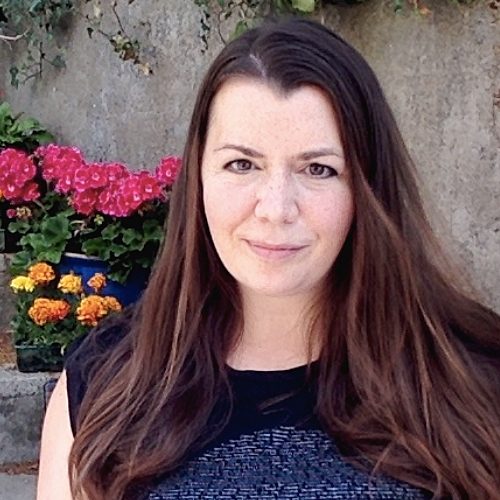

Professor Amy Brown is based in the Department of Public Health, Policy and Social Sciences at Swansea University in the UK. With a background in psychology, she has spent the last thirteen years exploring psychological, cultural and societal influences upon infant feeding decisions in the first year. Her research seeks to understand how we can shift our perception of how babies are fed away from an individual mothering issue to a wider public health problem – with societal level solutions. Dr Brown has published over 60 papers exploring the barriers women face in feeding their baby during the first year. She is a mother to three human children and three book babies: Breastfeeding Uncovered: Who really decides how we feed our babies, Why starting solids matters, and The Positive Breastfeeding Book: Everything you need to feed your baby with confidence. She is a regular blogger, aiming to change the way we think about breastfeeding, mothering and caring for our babies.
Topic: Breastfeeding Trauma: How Can We Recognise and Support Mothers Who Wanted to Breastfeed but Were Unable to Meet Their Goals? - [View Abstract]
Topic: How Can We Better Support Mothers Don’t Meet Their Breastfeeding Goals? - [View Abstract]
Topic: What Do Normal Infant Feeding Patterns Really Look Like? - [View Abstract]
We know that responsive feeding gets breastfeeding off to the best start. New parents are told that breastfed babies often feed 8 – 12 times a day, but in practice many new mothers will find themselves breastfeeding more frequently than this. Research exploring breastfeeding frequency is however conducted primarily with younger infants, focuses simply on breast versus bottle, or was funded by industry.
This presentation reports novel findings from a research study of 18,000+ mothers with a baby or child aged 0 – 5 years old. It examines how often babies feed during the day and night for each age range by milk feeding type, mode, and approach (e.g. schedule versus responsive) and how frequent day and night feedings remain the norm for breastfed babies into the preschool years. The data also explores differences in maternal perceptions of infant variations in hunger e.g. in response to growth spurts, variations over different days, and cluster feeding, highlighting how breastfeeding mothers describe a more varied pattern of infant feeding compared to those formula feeding.
Together the findings challenge notions that most babies breastfeed between 8 – 12 times per 24 hour and that irregular patterns or varied numbers of feeds are normal for breastfed infants. Although many breastfeeding practitioners will recognise this pattern, these findings will provide both an addition and challenge to the scarce existing research literature on infant feeding patterns.

View Details / Enroll
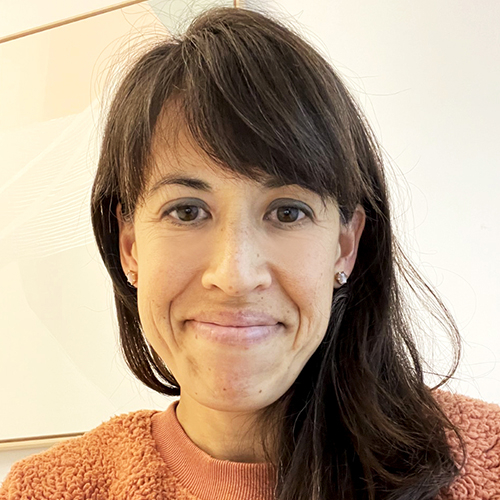
What Is Stopping Us? Kangaroo Care Implementation in Neonatal Intensive Care Units

Sarah Coutts is a registered nurse and lactation consultant with over 10 years experience in the neonatal intensive care unit. She currently is working as a Developmental Care Specialist in a NICU in Vancouver, Canada. Previous to this position Sarah was the Kangaroo Care Coordinator of an implementation science study to improve uptake of Kangaroo Care in NICUs in British Columbia. She is part of team of clinicians and researchers interested in understanding the barriers and enablers to Kangaroo Care from both the healthcare provider and parent perspectives and creating innovative strategies to increase knowledge and practice of Kangaroo Care in the NICU. She is passionate about raising awareness of the positive outcomes of zero separation between preterm and sick infants and their parents in the NICU.
Preterm infants are at increased risk for impaired neurodevelopmental outcomes (Stoll et al, 2010). There is evidence supporting the differences in outcomes related to how we provide care to preterm infants and the effects of the environment in which the care takes place. One of the most effective ways to reduce impaired infant outcomes is inviting parents to actively participate in care activities and provide Kangaroo Care (Boundy et al., 2016; Charpak et al., 2017). Despite international recommendations, empirical evidence, and an implementation science project focused on strengthening Kangaroo Care in neonatal intensive care units in British Columbia, Canada, implementation has been slow due to various barriers to uptake (Charpak et al., 2020; Coutts et al., 2021; WHO, 2020). A ‘one size fits all’ approach cannot guide Kangaroo Care implementation as it is a complex intervention and each NICU presents unique barriers and enablers. The uptake of Kangaroo Care relies on the involvement of parents and healthcare providers and their understanding and commitment to the evolving paradigm shift in neonatal care. This transition requires environmental and social supports, systems level change of philosophies of care, and assistance for healthcare providers to recognize their changing role.
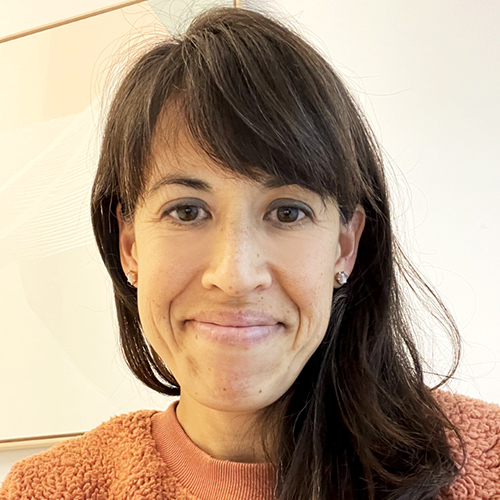
View Details / Enroll
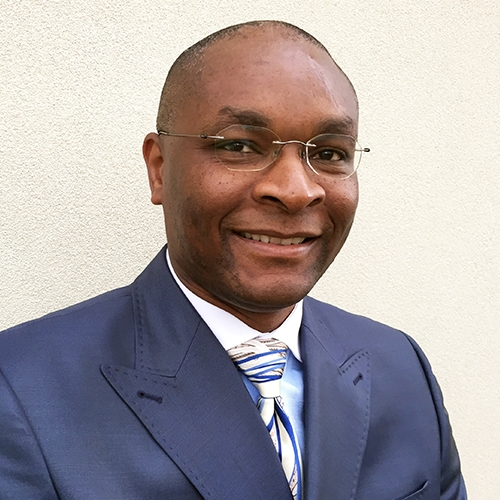
What Role Do Fathers’ Cultural Experiences Play in the Decision to Support Breastfeeding?

Muswamba Mwamba is a father of five breastfed children. An International Board-Certified Lactation Consultant, a public health practitioner, and a scholar; his research interests focus on immigrant health within the minority group in the context of the US health disparity. Muswamba helps mothers and babies obtain the best health outcomes by teaching and inspiring their partner/ father to fight to remove barriers that prevent successful breastfeeding. As a professor at the University of North Texas at Dallas, Muswamba disseminates clinical and non-clinical information to inform graduate students of significant developments and trends in the field of infant feeding.
Muswamba is a lifelong learner. He trained in Belgium, where he earned a bachelor's degree in agricultural engineering, a master's degree in human nutrition biochemistry, and a second master's degree in food science and technology. Witnessing striking disparity in his maternal and child health practice, he deepened his understanding of public health's complexity in the US and elsewhere. He earned a master's degree in Public Health at the University of North Texas and a doctoral degree in Public Health Executive Leadership from the University of North Carolina at Chapel Hill.
Male breastfeeding support is evidenced to influence breastfeeding behaviors. Fathers play a vital role in determining women's choice to breastfeed. Many studies regarding fathers' breastfeeding influence included participants from a variety of ethnic backgrounds. Only a few studies examined African American men's breastfeeding attitudes. Within the U.S. disparity context, Black African immigrant breastfeeding experiences have not been measured.
The social and cultural breastfeeding experiences of Congolese Immigrants compared to those of African Americans were explored, analyzed, and contrasted. In the immigrant study, the breastfeeding cultural practice's visibility enables the breastfeeding perceptions of Congolese fathers. They identify their Congolese origin as a warrant for breastfeeding decisions and practice. Breastfeeding is a natural process that does not require prior deliberations between expectant couples. Breastmilk is valued for its God-given virtues rather than its medical benefits.
In the cultural context of African American, family, and friends enable breastfeeding support perceptions. Personal experiences and knowledge of breastfeeding benefits are predictors of breastfeeding decisions. However, there is not a cultural, existential framework supporting breastfeeding.
This study's findings and recommendations guided the development of a dynamic African American men breastfeeding support toolkit designed to utilize existing public health structures.

View Details / Enroll
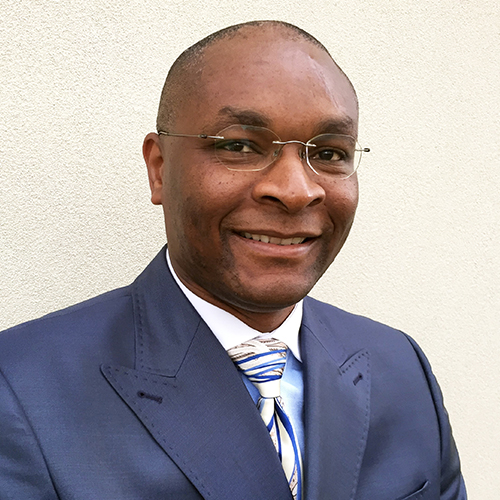
View Details / Enroll

When Breast Isn't Best: Challenges and Opportunities In Breastfeeding for Sexual Abuse Survivors

Elizabeth M. Johnson, MA is a trauma educator and peer support advocate in private practice. She helps people understand how sexual abuse affects sexual and reproductive health. She looks at how sexual abuse affects breastfeeding for example but also how traditional sex education ignores issues like how past abuse affects consent, teen pregnancy and risky behavior. Using a trauma lens, Elizabeth talks about everything sexual health related from Asking (about abuse) to Z(zzzz's) and everything in between. Elizabeth is the only educator in the world specializing in training and consulting on this topic.
In addition to training, speaking and consulting, Elizabeth has facilitated a free, weekly peer support group for sexual abuse survivors for over three years. She holds a Masters of Arts degree in Womens Studies from Southern Connecticut State University. Elizabeth identifies as a rape survivor and has worked with survivors since 2005. She lives in Durham, NC with her family.
Topic: When Breast Isn't Best: Challenges and Opportunities In Breastfeeding for Sexual Abuse Survivors - [View Abstract]
The benefits of breastfeeding are well known. Less known is how pervasive and long-lasting the effects of sexual abuse can be. As many as 1 in 3 women are survivors of contact sexual abuse. And, unfortunately, sexual abuse is rarely over when it's over.
Most new parents state that they want to at least “try” breastfeeding. And yet everyone knows someone for whom breastfeeding “didn’t work”. While informed care can sometimes help families stick with breastfeeding, even well-intended support can be triggering. Providers who deal with new families must have a working knowledge of sexual abuse as well as a trauma-informed approach in order to effectively support breastfeeding families. Learn how abuse can impact ability and desire to breastfeed, red flags that could indicate a history of sexual abuse and practical tools to support all families in a sensitive way.

View Details / Enroll

View Details / Enroll


Dr. Nastassia Harris is a licensed registered nurse with over 15 years’ experience in perinatal nursing and became an International Board Certified Lactation Consultant in 2009.
Nastassia serves as an assistant professor in the school of nursing at Montclair State University. Over her career Nastassia developed a passion for eliminating disparities in black infant and maternal health. In 2018, she went on to found a nonprofit, the Perinatal Health Equity Foundation where she serves as the executive director. Through the nonprofit, Nastassia established Sistahs Who Breastfeed, a breastfeeding support group for black women which operates in several NJ cities.
She is active in several committees and organizations including the Association of Women's Health Obstetrics and Neonatal Nursing and the Black Mamas Matter Alliance. Nastassia's research and clinical interests include implicit bias/racism in healthcare, breastfeeding in the black community, obstetrical violence, high risk OB, and reproductive justice.
Topic: When It's Time to Let Go... Stories of Weaning - [View Abstract]
Weaning is an inevitable component of breast/chestfeeding. Many families have expressed feeling unprepared for the experience and the challenges they face in that journey. This presentation will explore the current research and lived experiences of weaning among different families and cultures. We will discuss strategies that were both effective and ineffective in the weaning process, time period in which families began the weaning process as well as tips and tricks from the parent perspective that lead to successfully weaning their child. Weaning will be discussed in the context of the impact on both the parent and the child.

View Details / Enroll

When Mothers are Depressed: Understanding Perinatal Mood and Anxiety Disorders

Dr. Barnes is an internationally recognized expert on women’s reproductive mental health. A past president of Postpartum Support International, she currently sits on their President’s Advisory Board and is also a member of the Los Angeles County Perinatal Mental Health Task Force and the statewide Maternal Mental Health Collaborative. Her work has been published in a number of academic journals. She wrote the assessment and treatment guidelines for perinatal illness for the Perinatal Advisory Council of Los Angeles County. In addition to private practice, she is often retained by legal counsel on cases of infanticide, neonaticide and pregnancy denial. The 2009 recipient of a Lifetime Achievement Award presented by the Eli Lilly Foundation, Dr. Barnes is the co-author of The journey to parenthood: Myths, reality and what really matters (Radcliffe, 2007) and editor and contributing author to a reference text on Women’s reproductive mental health across the lifespan (Springer, 2014).
Cultural ideology promotes the idea that pregnancy and childbirth are the happiest time in women’s lives; yet, there are more psychiatric admissions around the child-bearing years than at any other time in the female life cycle. Perinatal depression looks different in terms of its symptom presentation than other types of major depressive episodes and the psychological issues that determine treatment are unique to this phase of life, not only for the new mother, but for the entire family. This presentation focuses on symptom recognition, risk factors and treatment options looking at the impact of maternal depression on the developing mother-infant attachment.

View Details / Enroll

View Details / Enroll

When Tears Flow and Milk Doesn’t: Support Through Breastfeeding Grief

Amy Barron Smolinski holds an MA from Union Institute and University, where her thesis explored re-emerging Sacred Feminine manifestations in the lives of contemporary women. She is the Executive Director of Mom2Mom Global, a network of breastfeeding peer support, education, and advocacy for military families. She works with breastfeeding dyads in a variety of settings, from inpatient postpartum and NICU to home visits, telephone, and online consulting as an Advanced Lactation Consultant and Certified Lactation Counselor. Supporting breastfeeding families has shown her how each parent’s breastfeeding journey with each of her children is a reclamation of her connection to her inner wisdom and power. Amy is an actress, director, and professional voice artist in Germany, where she resides with her husband and four sons, all of whom breastfed to self-weaning.
Topic: When Tears Flow and Milk Doesn’t: Support Through Breastfeeding Grief - [View Abstract]
Some women who initiate breastfeeding will not meet their duration goals. There are a number of factors that contribute to undesired weaning. For a woman who ceases breastfeeding before she desires to do so, it can be devastating. For the lactation professional or peer supporter, this can also feel like failure. Grief counseling and ethical principles are applicable to supporting a mother grieving the loss of the breastfeeding relationship she desired. This presentation uses case studies to address the questions of how breastfeeding supporters ethically and compassionately support mothers who end their breastfeeding journey before they wish to, how lactation professionals and peer supporters can manage our own feelings in these situations, and what are the ramifications of these cases as we continue to share accurate breastfeeding information in the face of media-driven culture in which infant feeding is loaded with guilt, shame, and fear.

View Details / Enroll

View Details / Enroll






